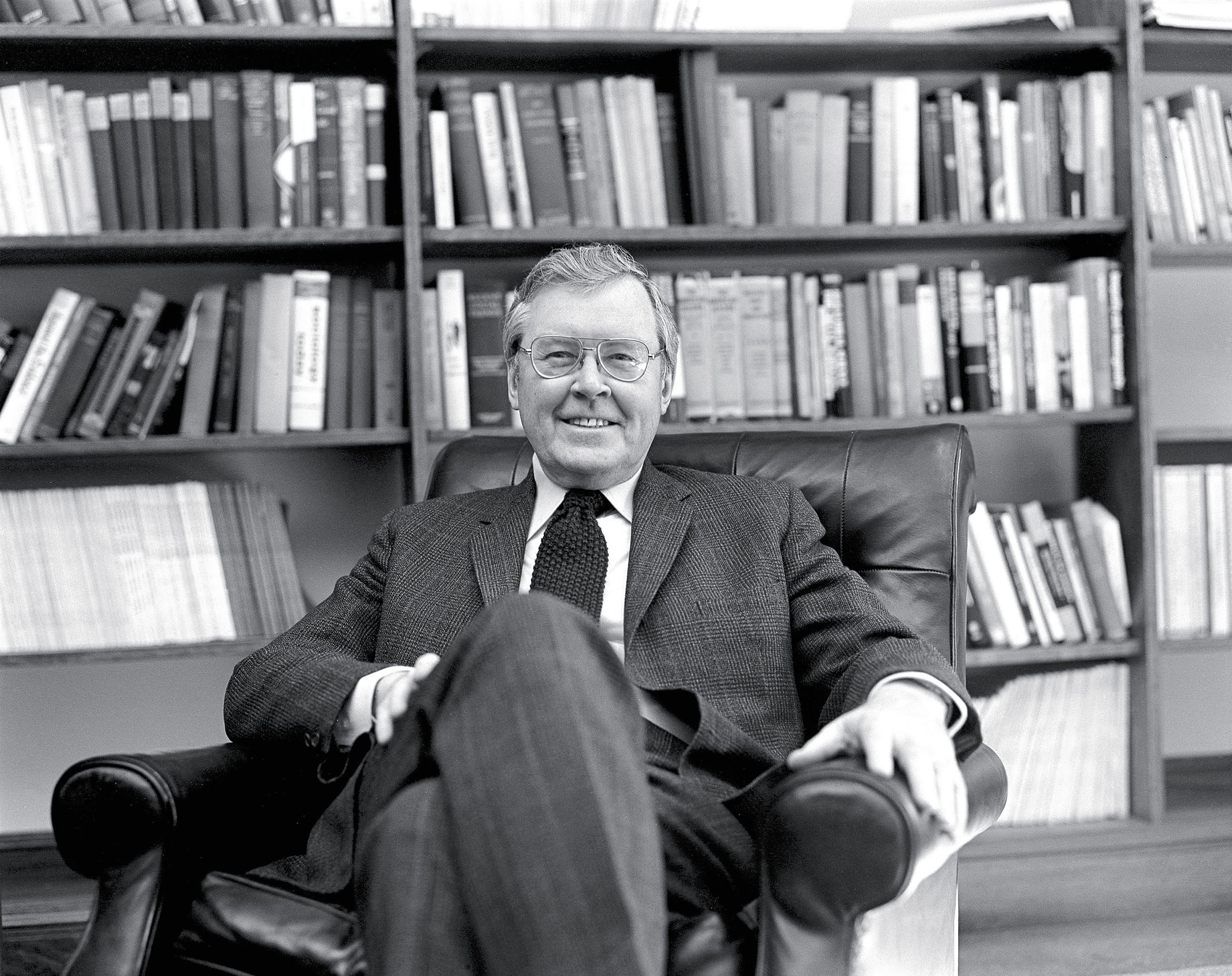A Compassionate Scholar of Crime and Punishment
Professor Emeritus Lloyd E. Ohlin, an expert in criminal justice who was well-known for his work related to juvenile delinquency, died at his home in Santa Barbara, Calif., on Dec. 6, 2008, at the age of 90.
Ohlin was a sociologist by training, and his work shed light on the conditions that gave rise to juvenile crime. Combating the widely held 1950s view that youthful irre-sponsibility led to the rise of street gangs and delinquency, Ohlin theorized that poverty and obstacles to upward mobility were the primary causes. He also examined the effectiveness of correctional institutions.
“The trouble comes with the break between aspirations and opportunities,” Ohlin said in the New York Post in 1961. “When we lead people to aspire to higher and higher standards and then fail to produce opportunities, they are left with a sense of having been denied and they often become delinquents.”
In 1967, Ohlin became a professor at Harvard Law School, where he taught criminal law and served as the research director of the Center for Criminal Justice. Prior to joining the HLS faculty, Ohlin directed the work of the Center for Education and Research in Corrections at the University of Chicago and taught as a professor of sociology at the Columbia University School of Social Work from 1956 to 1967.
“Lloyd Ohlin was one of the early participants in the interdisciplinary approach to legal education,” said former HLS Dean Elena Kagan ’86 at the time of his death. “During his time here, his students and colleagues gained invaluable insight into problems of crime and punishment, especially relating to juvenile offenders, thanks to his grounding in the fields of sociology and criminology.”
Ohlin took several leaves of absence from his academic positions in order to implement and shape programs that would fight juvenile delinquency by combating poverty. He worked as a sociologist for the Illinois Parole and Pardon Board from 1947 to 1953, and he helped to plan Manhattan’s Mobilization for Youth, an antipoverty program that became a model for numerous similar federally funded efforts in the 1960s.
From 1961 to 1962, while on leave from Columbia, he helped to direct a new federal program for the President’s Committee on Juvenile Delinquency and Youth Crime. From 1965 to 1967, he served as associate director of the President’s Commission on Law Enforcement and Administration of Justice.
“He was interested in the harmful as well as the helpful effects of the criminal justice system,” HLS Professor Philip Heymann ’60 told The Boston Globe in December. “He was very much a professional, and he was immensely highly regarded.”
Born in Belmont, Mass., Ohlin earned his A.B. from Brown University in 1940 before going on to earn an M.A. from Indiana University in 1942 and a Ph.D. from the University of Chicago in 1954—both in sociology.
He served in the U.S. Army doing intelligence work during World War II and as an expert consultant on prison matters during the Korean War.
Ohlin was the author of numerous articles and many books, including “Sociology and the Field of Corrections” (1956), “Delinquency and Opportunity” (with Richard A. Cloward, 1960), “A Theory of Correctional Reform” (with Alden Miller and Robert Coates, 1977), “Delinquency and Community” (with Alden Miller, 1985) and “Human Development and Criminal Behavior” (with Michael Tonry and David P. Farrington, 1991).
President of the American Society of Criminology in 1986, a fellow in 1982 and recipient of the society’s Edwin Sutherland Award in 1967, he also received the Bruce Smith, Sr. Award from the Academy of Criminal Justice Sciences in 1992.
After his retirement from HLS in 1982, Ohlin divided his time between California and the coast of Maine, where he loved to sail. He continued work on several projects, including the final report of a study he headed on the Massachusetts juvenile justice system. He also consulted for the National Institute of Justice and other foundations.
